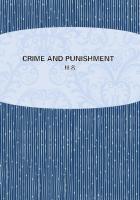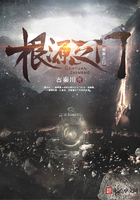The horn, the falchion grasp with mighty hand, And peal proud Arthur's march from Fairy-land?
Scenes of Infancy, _Part I._
---
In the same cabinet with the preceding fragment, the following occurred among other _disjecta membra._ It seems to be an attempt at a tale of a different description from the last, but was almost instantly abandoned.
The introduction points out the time of the composition to have been about the end of the eighteenth century.
THE LORD OF ENNERDALE.
IN A FRAGMENT OF A LETTER FROM JOHN B------, ESQ.OF THAT ILK, TO WILLIAM G------, F.R.S.E.
``Fill a bumper,'' said the Knight; ``the ladies may spare us a little longer---Fill a bumper to the Archduke Charles.''
The company did due honour to the toast of their landlord.
``The success of the Archduke,'' said the muddy Vicar, ``will tend to further our negotiation at Paris; and if------''
``Pardon the interruption, Doctor,'' quoth a thin emaciated figure, with somewhat of a foreign accent; ``but why should you connect those events unless to hope that the bravery and victories of our allies may supersede the necessity of a degrading treaty?''
``We begin to feel, Monsieur l'Abb<e'>,'' answered the Vicar, with some asperity, ``that a continental war entered into for the defence of an ally who was unwilling to defend himself, and for the restoration of a royal family, nobility, and priesthood, who tamely abandoned their own rights, is a burden too much even for the resources of this country.''
``And was the war then on the part of Great Britain,'' rejoined the Abb<e'>, ``a gratuitous exertion of generosity? Was there no fear of the wide-wasting spirit of innovation which had gone abroad? Did not the laity tremble for their property, the clergy for their religion, and every loyal heart for the constitution? Was it not thought necessary to destroy the building which was on fire, ere the conflagration spread around the vicinity?''
``Yet, if upon trial,'' said the Doctor, ``the walls were found to resist our utmost efforts, I see no great prudence in persevering in our labour amid the smouldering ruins.''
``What, Doctor,'' said the Baronet, ``must I call to your recollection your own sermon on the late general fast?---did you not encourage us to hope that the Lord of Hosts would go forth with our armies, and that our enemies, who blasphemed him, should be put to shame?''
``It may please a kind father to chasten even his beloved children,''
answered the Vicar.
``I think,'' said a gentleman near the foot of the table, ``that the Covenanters made some apology of the same kind for the failure of their prophecies at the battle of Dumbar, when their mutinous preachers compelled the prudent Lesley to go down against the Philistines in Gilgal.''
The Vicar fixed a scrutinizing and not a very complacent eye upon this intruder.He was a young man of mean stature, and rather a reserved appearance.
Early and severe study had quenched in his features the gaiety peculiar to his age, and impressed upon them a premature cast of thoughtfulness.
His eye had, however, retained its fire, and his gesture its animation.
Had he remained silent, he would have been long unnoticed; but when he spoke, there was something in his manner which arrested attention.
``Who is this young man?'' said the Vicar in a low voice, to his neighbour.
``A Scotchman called Maxwell, on a visit to Sir Henry,'' was the answer.
``I thought so, from his accent and his manners,'' said the Vicar.
It may be here observed, that the Northern English retain rather more of the ancient hereditary aversion to their neighbours than their countrymen of the South.The interference of other disputants, each of whom urged his opinion with all the vehemence of wine and politics, rendered the summons to the drawing-room agreeable to the more sober part of the company.
The company dispersed by degrees, and at length the Vicar and the young Scotchman alone remained, besides the Baronet, his lady, daughters, and myself.The clergyman had not, it would seem, forgot the observation which ranked him with the false prophets of Dunbar, for he addressed Mr.
Maxwell upon the first opportunity.
``Hem! I think, sir, you mentioned something about the civil wars of last century? You must be deeply skilled in them, indeed, if you can draw any parallel betwixt those and the present evil days---days which Iam ready to maintain are the most gloomy that ever darkened the prospects of Britain.''
``God forbid, Doctor, that I should draw a comparison between the present times and those you mention.I am too sensible of the advantages we enjoy over our ancestors.Faction and ambition have introduced division among us; but we are still free from the guilt of civil bloodshed, and from all the evils which flow from it.Our foes, sir, are not those of our own household; and while we continue united and firm, from the attacks of a foreign enemy, however artful, or however inveterate, we have, I hope, little to dread.''
``Have you found anything curious, Mr.Maxwell, among the dusty papers?'' said Sir Henry, who seemed to dread a revival of political discussion.
``My investigation amongst them led to reflections which I have just now hinted,'' said Maxwell; ``and I think they are pretty strongly exemplified by a story which I have been endeavouring to arrange from some of your family manuscripts.''
``You are welcome to make what use of them you please,'' said Sir Henry; ``they have been undisturbed for in any a day, and I have often wished for some person as well skilled as you in these old pot-hooks, to tell me their meaning.''












